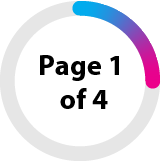Integrity and Ethics
Learning outcomes:
After you complete this section you will be able to:
-
briefly list the main principles of academic integrity as included in the University of Southampton Regulations Governing Academic Integrity
-
demonstrate your understanding academic integrity by applying the knowledge that you have gained from this section to complete a short instant response test
-
outline what is plagiarism through examples and explain in your own words how to avoid it
- give examples of ways to manage your references using technology or manual methods
-
explain where to find the referencing style recommended by your school
-
identify when you may need to credit or seek permission such as copyright to use other academic work in your research or writing
-
identify if you need to apply for ethics approval for your research
-
demonstrate your understanding of the requirement of ethics approval by applying the knowledge that you have gained from this section to complete a short instant response test
Integrity and ethics
This section is all finding out about the importance of acting with honesty and responsibility in your academic life. You will be required to present accurate information in your research project. You will need to follow the rules and conventions of academic professional work by acknowledging all sources of information that you draw upon in your academic work. You will need to obtain permission to use other academic work which is protected by copyright law and where appropriate and give credit to the author or creator of the work. Where research involves human or animal subjects you will need to ensure that this is done ethically and with appropriate permissions.
The next section is all about academic integrity.

